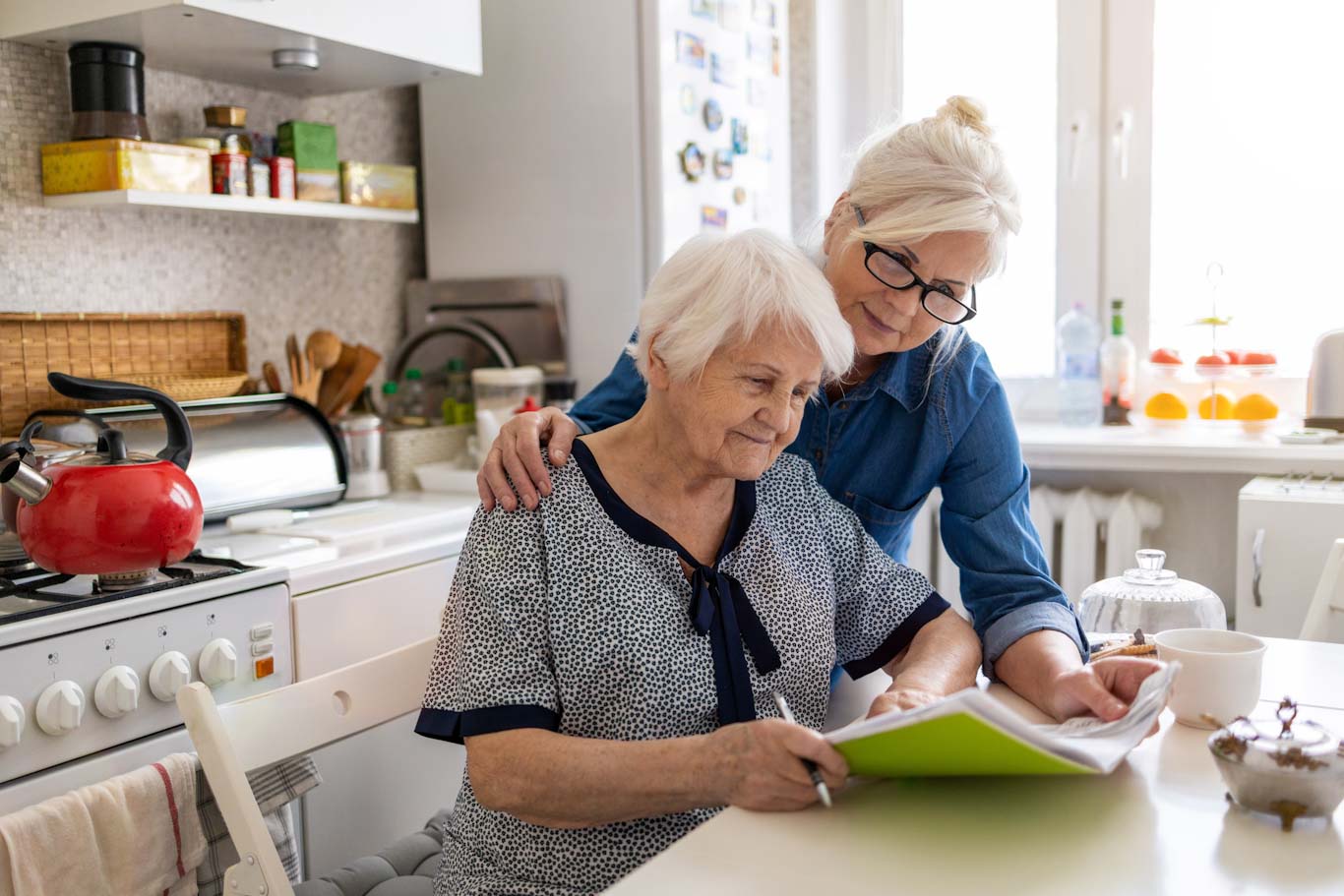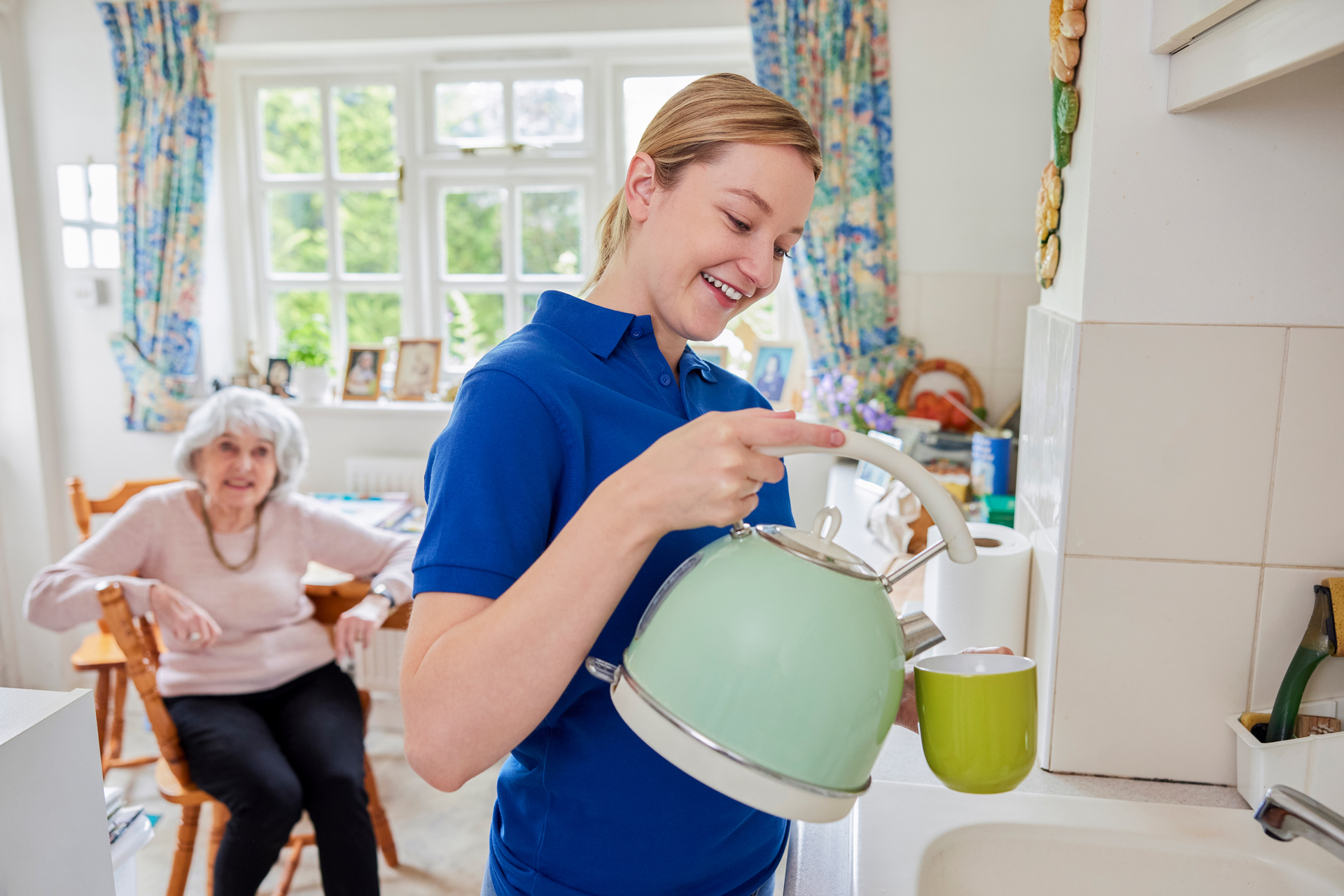Advice to Help Care for a Loved One Suffering with Dementia


Techniques to help the early symptoms of Dementia
When a loved one is diagnosed with dementia you may feel hopeless and not know what to do, but there are practical techniques you can use to help them to carry on as much as possible as their memory fades and confusion can begin to set in. Symptoms may be relatively mild at first but they will get worse with time, usually over several years. These include problems with memory, thinking, problem-solving or language, and often changes in emotions, perception or behaviour. Here is some advice on how to help with the most common early memory problems.
Forgetting names and words
People with dementia may have difficulties finding the right word in a conversation. They may confuse one word for another or forget the meaning of certain words.
They might also forget the names of friends or family members whom they have known for a long time and are close to. This can make them frustrated and angry.
How you can help:
- If the person is struggling to find a word, give them enough time to say what they are trying to say. Feeling under pressure can make it more difficult for them.
- If the person doesn’t understand a word you are using, try using prompts, cues and context to help with naming items. The person may recognise an object and what it is used for, even if they can’t remember what it is called. Ask them to describe the item rather than name it.
- If the person is struggling to remember someone’s name, try to find tactful ways to remind them without highlighting that they have forgotten – for example, ‘Here’s your friend, Elena’.
- Consider using a ‘memory book’ or ‘memory box’ with photos and brief information on people (such as their name and the story of how the person knows them). The person with dementia can then refer to this if they want to.
Getting lost outside the home
Often someone with dementia may forget where they are going or why they have left the house. Familiar environments may suddenly seem strange and this can lead to them getting lost or coming to harm.
How you can help:
- If the person is happy to, it can help if other people who live nearby are told about the person’s difficulties. People like neighbours and local shopkeepers may be able to help if the person gets lost.
- The person may find having a mobile phone useful. There are easy-to-use mobiles available if the person is not used to having one. You may also consider using assistive technology products, such as a GPS devices, pendants and pagers.
- Make sure the person has some form of identification when they go out, as well as contact numbers of people they know well. An emergency identification device, such as those provided by MedicAlert, may be helpful.
Getting lost at home
People with dementia often can forget the layout of the home they are in and become confused about where each room is located. They may not recognise the home they are in at all. As their dementia progresses, they may say that they want to ‘go home’, not realising that is where they are.
How you can help:
- If the person is recalling a home that they used to live in, speak with them about this other home, and what it means for them. This may help them to place it in the past.
- Reassure the person that they are safe if they ask to go home, and encourage them to talk about their feelings. Asking questions like ‘What do you like about your home?’ may help you understand what they need to feel comfortable.
- Make sure that the person is surrounded with familiar items that will help them feel at home.
- Keep a reminder of the current home address somewhere visible to remind the person of where they are.
- If the person forgets the layout of the home, try putting up dementia friendly signs to help them find the bathroom, kitchen and other rooms they use regularly.
Forgetting recent conversations or events
Even in the early stages, people with dementia may find it hard to remember recent conversations and events.
Due to the damage that is causing the person’s dementia, their brain may not have stored the information. This means that they cannot bring back the memory of the event or discussion because they may not have that memory.
How you can help:
- Pictures and written descriptions can be useful records of things that have happened. Encourage the person to use a diary, journal or calendar to record events and conversations.
- Give simple answers to questions and repeat them as often as needed. You can also write the answer down so that the person has a note of it. It won’t help to tell them that they have heard the information before.
- If the person can’t remember whether they have done something or not, try to give context to your question and include prompts. For example, ‘It must be a while since you ate breakfast, are you hungry?’ rather than ‘Have you had breakfast?’.
Having difficulties with day-to-day tasks
As dementia progresses, the person will have more difficulties with daily tasks, especially those that involve following a set of steps such as getting dressed or making a cup of tea. They may not remember the order of the steps to follow. It is important to support them to do as much as possible for themselves, for as long as they can.
How you can help
- Help the person to perform tasks by breaking them down into smaller, simpler steps. It can help to write short instructions and place them nearby.
- Consider the time of day when the person is usually more able to concentrate and try to schedule tasks for these times.
- Make sure that items that the person uses regularly are clearly visible to them. Make tasks easier by putting out the items the person will need– for example, place tea bags and a mug near the kettle.
- Use reminders, such as sticky notes or a wall calendar, for one-off tasks. Set up more permanent reminders for regular tasks – for example, put up a sign by the front door to remind the person to take their keys and wallet if they leave the house.
- Assistive technology devices can help people with dementia manage everyday activities – for example, electronic pill boxes can remind the person to take daily medication. Assistive technology can also help to reduce danger – for example, through using gas valves and smoke alarms.
- Talk to an occupational therapist. They will be able to advise on coping strategies and suitable devices for help with day-to-day tasks.
There is a lot of information and advice help out there to help you create a supportive environment and help your loved one as they navigate their new life with this illness. Visit Admiral Nurse Dementia Helpline – Dementia UK or Help and support for people with dementia – NHS (www.nhs.uk)


